2021
COVID-19
Hand hygiene promotion during outbreaks of respiratory infections
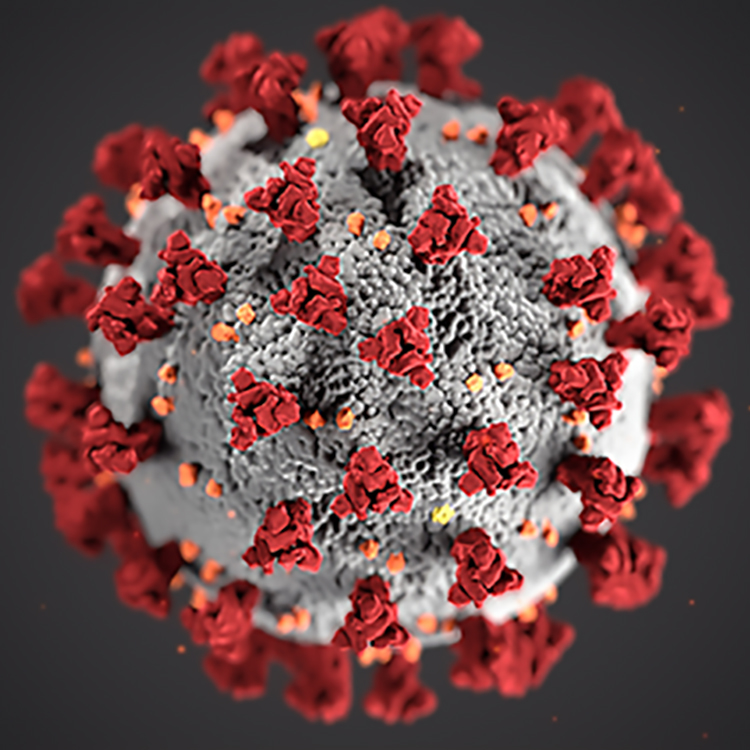 The quickly evolving nature of the COVID-19 pandemic has put pressure on formulating evidence-based recommendations. To quickly identify the best available evidence, we developed a “rapid systematic review” to search for studies on the effectiveness of community-based hand hygiene promotion programs on the transmission of respiratory infections during an epidemic or pandemic.
The quickly evolving nature of the COVID-19 pandemic has put pressure on formulating evidence-based recommendations. To quickly identify the best available evidence, we developed a “rapid systematic review” to search for studies on the effectiveness of community-based hand hygiene promotion programs on the transmission of respiratory infections during an epidemic or pandemic.
Since the review was conducted early on in the pandemic (April-May 2020), limited evidence from controlled studies was available for COVID-19, and therefore studies of similar infections, such as influenza, were also included. Twelve studies, conducted in households, schools and the occupational setting, were identified. Hand hygiene promotion was achieved via a training or via the dissemination of leaflets, posters or videos. We could conclude that preventive hand hygiene promotion interventions in influenza interepidemic periods significantly decreased influenza positive cases in the school setting. However, no improvement could be demonstrated when hand washing promotion was implemented in households to prevent secondary influenza transmission from already infected household members (epidemic and interepidemic periods). Main message for hand washing promotion: the earlier, the better!
First aid
Publication of the updated first aid manual for laypeople
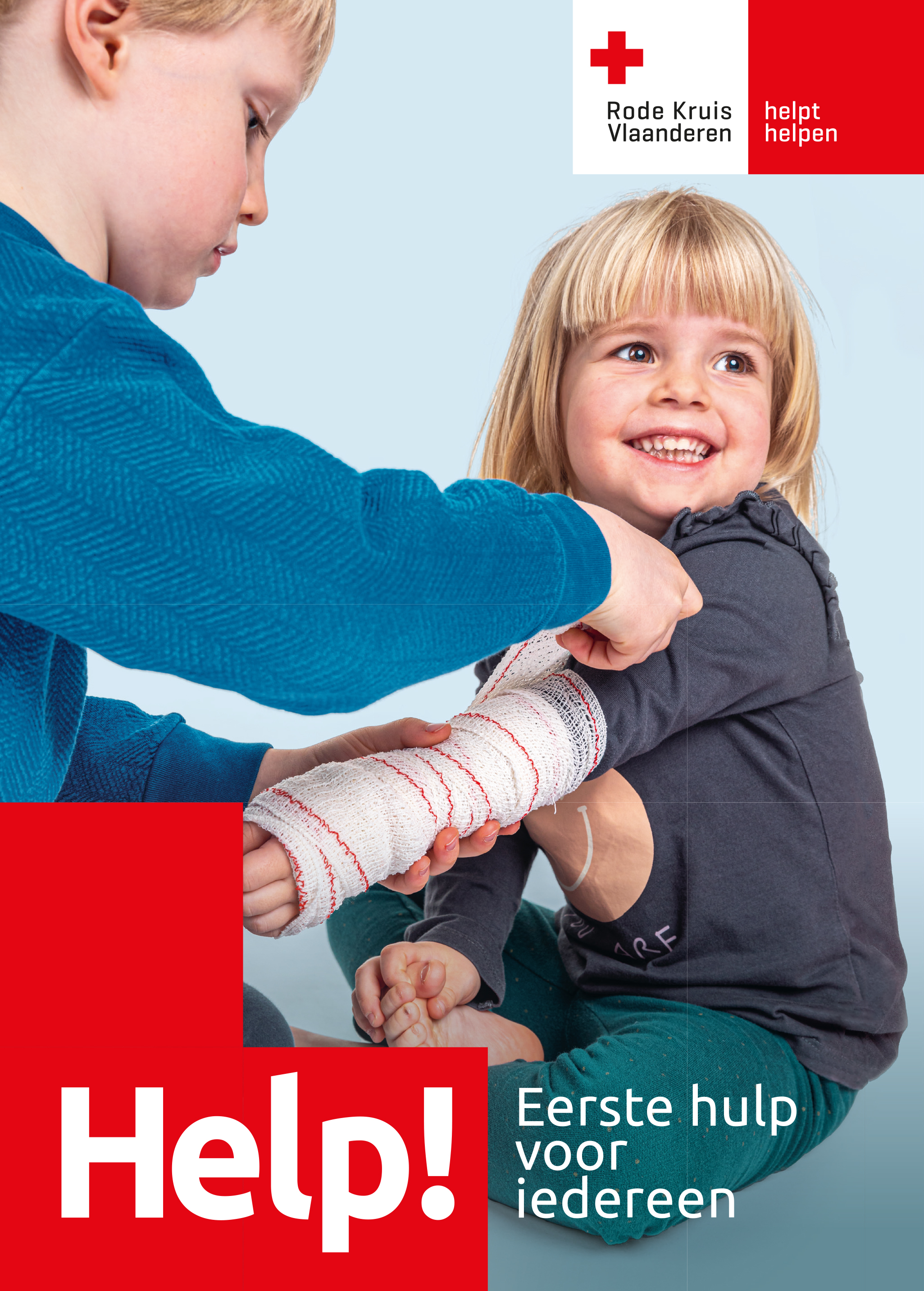
In September 2021, the updated first aid manual for laypeople in Flanders was published. Help! First aid for everyone consists of 996 pages and tells you what to do if someone needs first aid, including relevant background information and all kinds of practical tips. As mentioned in our 2020 project overview, CEBaP was involved in the update of the Belgian Red Cross’ evidence-based first aid guidelines and corresponding first aid manual for laypeople. We developed 490 evidence summaries, which were interpreted by a panel of content experts and translated by our colleagues from the Belgian Red Cross’ First Aid Department into the manual. All evidence summaries can be consulted in our Evidence Summary Database.
Update Basic First Aid in Africa
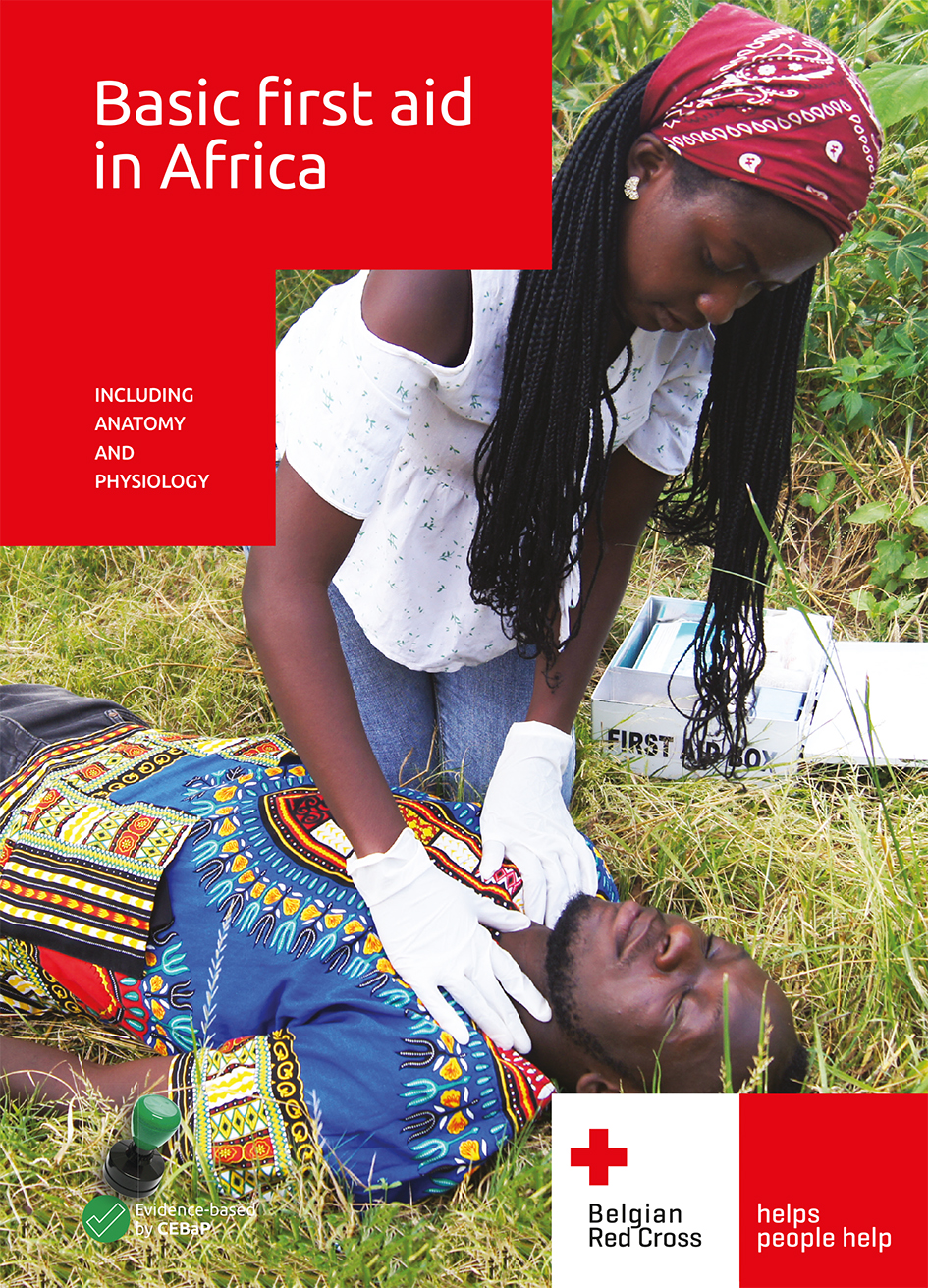 Our basic first aid manual for Sub-Saharan Africa, Basic First Aid in Africa, has received its third update in 2021. We have contributed to this work by developing or updating 211 evidence summaries on first aid topics relevant to the African context. These were interpreted by a panel of dedicated content experts and translated by our colleagues from the Belgian Red Cross’ International and First Aid Departments into a visually attractive manual. You can download Basic First Aid in Africa free of charge.
Our basic first aid manual for Sub-Saharan Africa, Basic First Aid in Africa, has received its third update in 2021. We have contributed to this work by developing or updating 211 evidence summaries on first aid topics relevant to the African context. These were interpreted by a panel of dedicated content experts and translated by our colleagues from the Belgian Red Cross’ International and First Aid Departments into a visually attractive manual. You can download Basic First Aid in Africa free of charge.
First aid systematic reviews in collaboration with ILCOR
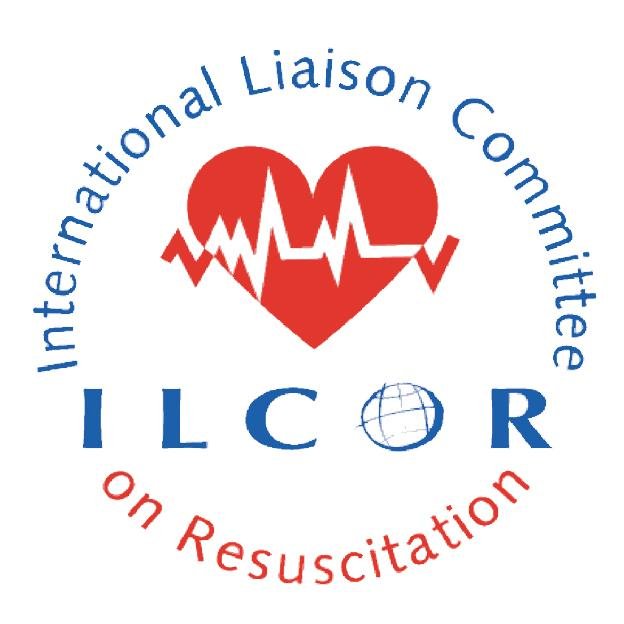 Already since 2013, CEBaP conducts systematic reviews in collaboration with the First Aid Task Force of the International Liaison Committee on Resuscitation (ILCOR).
Already since 2013, CEBaP conducts systematic reviews in collaboration with the First Aid Task Force of the International Liaison Committee on Resuscitation (ILCOR).
In 2021 we developed a systematic review on the use of different rehydration solutions for exertion-related dehydration, such as sport drinks, coconut water, milk or beer, compared with water. Out of 3485 screened references, we included 23 studies, all cross-over studies with healthy young adults performing exercise in a controlled environment. All evidence was of low to very low certainty. In their annual CoSTR publication, published in Circulation and Resuscitation, ILCOR recommends the use of readily available rehydration drinks or water for treating exertion-related dehydration. The use of 4-9% carbohydrate-electrolyte drinks is suggested, but if not available, 0%-3%, water, coconut water or skim or low-fat cow's milk can be used. There is insufficient evidence to suggest for or against rehydration with beer of 0%-5% alcohol.
Study on the use of simulated patients in FA training
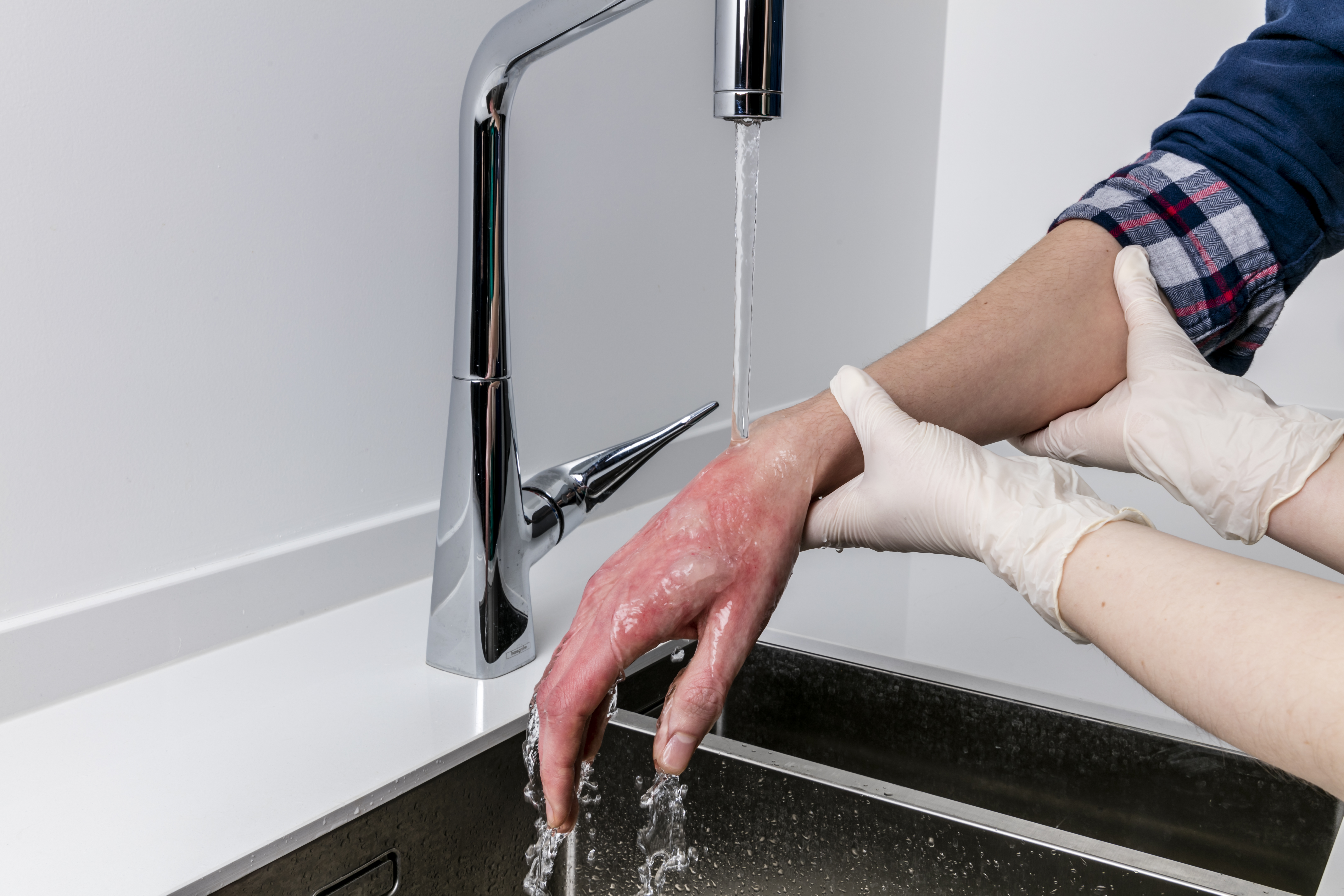 Together with our colleagues of the Workplace First Aid Department, we have conducted a controlled experimental study to investigate the added value of using a simulated patient during first aid trainings. Simulated patients are actors that feign injuries, to give participants of our trainings a more realistic experience. Our study involved over 1000 participants of basic first aid trainings and shows that simulated patients have no impact on knowledge, skills, self-efficacy and participant satisfaction immediately after following basic first aid training. One year after following training, people who followed training with a simulated patient had an increased retention of knowledge, but not self-efficacy. Results of this study have been submitted for publication.
Together with our colleagues of the Workplace First Aid Department, we have conducted a controlled experimental study to investigate the added value of using a simulated patient during first aid trainings. Simulated patients are actors that feign injuries, to give participants of our trainings a more realistic experience. Our study involved over 1000 participants of basic first aid trainings and shows that simulated patients have no impact on knowledge, skills, self-efficacy and participant satisfaction immediately after following basic first aid training. One year after following training, people who followed training with a simulated patient had an increased retention of knowledge, but not self-efficacy. Results of this study have been submitted for publication.
The Volunteer’s Review

The Belgian Red Cross deploys more than 10,000 volunteers who daily bring our evidence-based guidelines into practice at mass gathering manifestations, first aid courses, social activities, blood collections, disaster settings, …. Considering their great pivotal role in bridging the gap between theoretical knowledge and its practical application in the field, we have launched The Volunteer’s Review to challenge our volunteers to ask scientific questions based on their experiences and activities at Belgian Red Cross. The aim of this project was informing our volunteers in the different steps necessary to develop an evidence summary that provides an answer to a specific (research) question and to inform about the principles and importance of Evidence-Based Practice.
We received eight research questions and selected the following PICO question: In children and adolescents with an intellectual disability (P), do tailor-made first aid trainings (I), compared with standard first aid courses (C) impact first aid knowledge, skills and attitude, self-efficacy, pleasure and satisfaction (O)? All steps undertaken to answer this question were elucidated on the volunteer’s webpage. As a closing event, we organized a webinar (in Dutch) in January 2022 to present the results.
Doctoral project
In October 2021, a junior researcher has started at CEBaP with a doctoral project on first aid training in low- and middle-income countries (LMICs), under the supervision of CEBaP manager Prof. Emmy De Buck. The aim of this doctoral project is to identify and generate scientific evidence on first aid education programs in LMICs by creating an ‘evidence ecosystem’. This ecosystem is used to link the different steps in the synthesis, translation, dissemination, implementation, evaluation and production of evidence. Ideally, all these steps are connected in a cycle where evidence production leads to new evidence synthesis, but unfortunately many of these steps still happen independently by different organizations without informing each other. Therefore, the doctoral project will address every step of the cycle to ensure that evidence is used in practice and practice informs evidence, in order to bridge the gap between research and practice. This will be a close collaboration between CEBaP (for the research side) and the department of International Cooperations of the Belgian Red Cross (for the practice side), responsible for the implementation of the first aid programs in different LMICs.
Scientific literature alerts on first aid
Since November 2020, a CEBaP researcher pro-actively searches for the most recent scientific publications that are relevant to the First Aid (including Psychological First Aid) activities of the Belgian Red Cross, making use of the search alert service of PubMed on a monthly basis. Relevant papers are provided to the board of directors of the Humanitarian Services of Belgian Red Cross and directly to the colleagues involved with first aid (education).
Blood donation and transfusion
EBA iron/EPO project
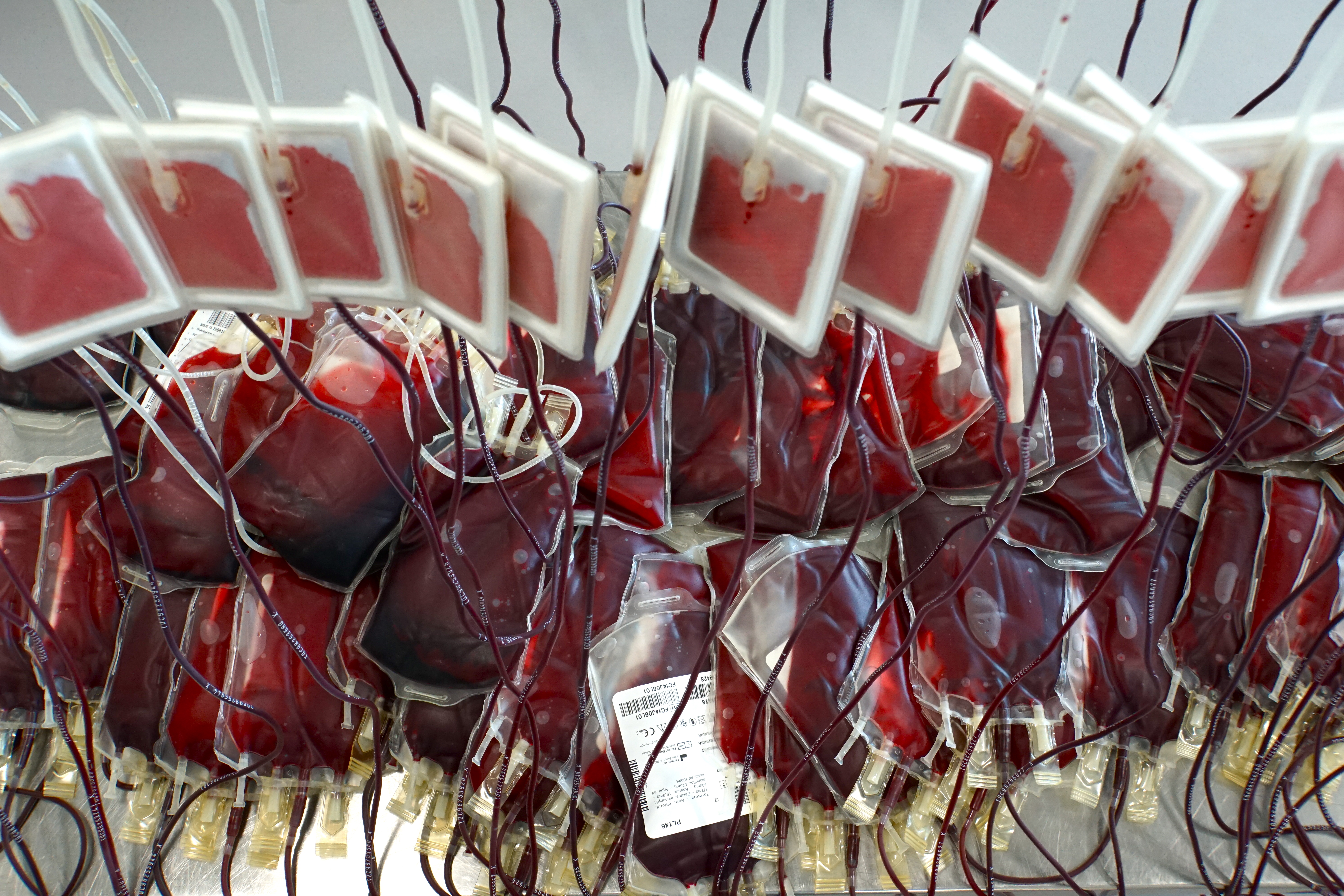 A grant from the European Blood Alliance allowed us to conduct systematic reviews regarding the (cost-)effectiveness of using Erythro-Stimulating Agents (ESAs) and/or iron therapy in patients with preoperative anaemia undergoing an elective surgery.
A grant from the European Blood Alliance allowed us to conduct systematic reviews regarding the (cost-)effectiveness of using Erythro-Stimulating Agents (ESAs) and/or iron therapy in patients with preoperative anaemia undergoing an elective surgery.
Effectiveness iron supplementation with or without ESA therapy
We identified 29 randomized controlled trials (RCTs) and 2 non-RCTs comparing the effectiveness of preoperative iron monotherapy, or iron in combination with ESAs, to a control group (receiving no treatment, usual care, or placebo). We found that preoperative administration of iron monotherapy in patients with anaemia may not result in a reduced number of patients or units transfused (low-certainty evidence). Iron supplementation in addition to ESAs probably results in a reduced RBC utilization (moderate-certainty evidence). For more information, see our systematic review published in Transfusion Medicine Reviews.
Cost-effectiveness iron and/or ESA therapy
Five studies (4 economic evaluations and 1 RCT) were included in this review, one study on intravenous iron and 4 on the combination of ESAs and oral iron. The economic evaluation on intravenous iron only, only took into account costs and outcomes during a patient’s stay in hospital. Therefore, cost-effectiveness of preoperative iron remains uncertain. The three economic evaluations on ESAs took into account costs and outcomes over a patient’s lifetime, and reported cost per (QA)LY gained ranged from 20-65 million (GBP or CAD). Updating these analyses with current data confirmed that ESAs have a cost per (QA)LY gained of 3.5-120 million (GBP or CAD).
Cost-effectiveness of preoperative iron is unproven, whereas routine preoperative ESA therapy cannot be considered cost-effective in elective surgery, based on the limited available data. Future guidelines should reflect these findings. This systematic review is published in Pharmacoeconomics.
Platelet transfusion
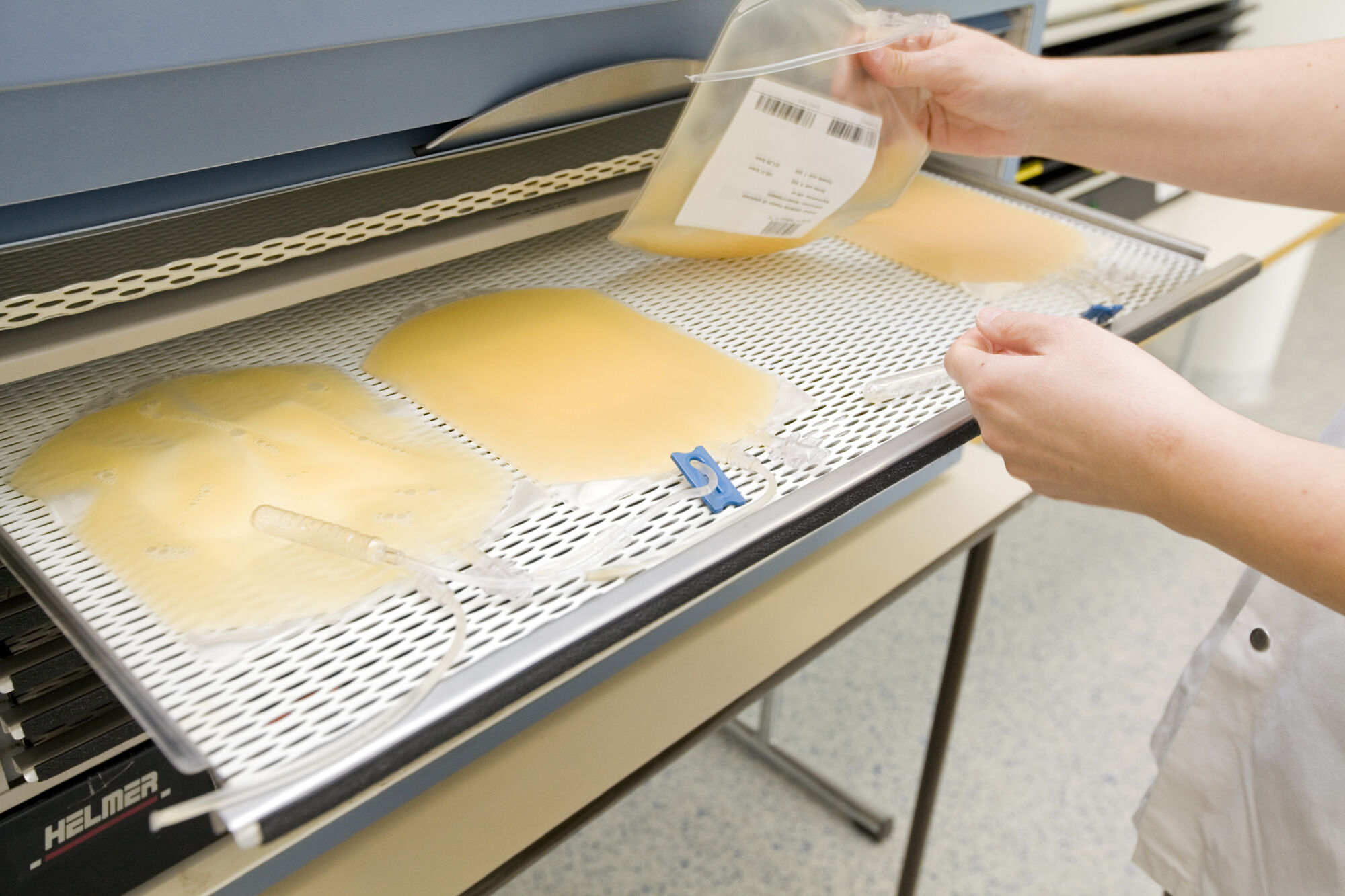 In 2021 we have received a grant from the European Blood Alliance to conduct secondary research projects in the field of platelet transfusion. We are currently conducting one scoping review on platelet transfusion and two systematic reviews investigating the cost-effectiveness of platelet production modalities and the use of thrombopoietin receptor agonists.
In 2021 we have received a grant from the European Blood Alliance to conduct secondary research projects in the field of platelet transfusion. We are currently conducting one scoping review on platelet transfusion and two systematic reviews investigating the cost-effectiveness of platelet production modalities and the use of thrombopoietin receptor agonists.
Blood donations in times of disaster
Timely and adequate access to safe blood forms an integral part of universal health coverage, but may be compromised by natural or man-made disasters. Blood services have the challenging task of responding quickly in these scenarios, carefully balancing efforts to prevent both blood shortage, as well as unnecessarily high stocks of blood that may need to be destroyed because of their limited shelf life.
To find out how disasters affect the blood supply chain, CEBaP conducted a systematic review in cooperation with the International Cooperations Department of the Belgian Red Cross. The goal was to determine the impact of disasters on the rates of blood donation and transfusion transmitted infections in donated blood. Based on very low-certainty evidence from 18 observational studies, we can conclude that it is very uncertain if there is an association between disaster occurrence and transfusion transmissible infection rates in donated blood. In addition, the evidence did not allow for generalizable conclusions on the impact of disasters on blood donation rates.
The International Cooperations Department of the Belgian Red Cross is currently setting up projects to raise awareness on the importance of voluntary donations, donor recruitment and retention as measures to bridge the gap between supply and demand, and reduce the impact of disasters. In addition, they aim to advise and support the blood services and mobile collections, in order to ensure a safe and sustainable blood supply.
Blood donation and physical exercise
 In 2017, CEBaP published a systematic review about the effects of blood donation on the performance and physiological parameters of sportsmen and women. The review showed that non-professional sportsmen and women can donate blood without suffering long-term effects on their sporting activities. However, the certainty of the evidence – based on uncontrolled before-after studies – was very low.
In 2017, CEBaP published a systematic review about the effects of blood donation on the performance and physiological parameters of sportsmen and women. The review showed that non-professional sportsmen and women can donate blood without suffering long-term effects on their sporting activities. However, the certainty of the evidence – based on uncontrolled before-after studies – was very low.
Therefore, in 2021, a master student medicine from KU Leuven, supervised by a CEBaP researcher, conducted an update of this systematic literature review, also including plasma donation. We identified 9 new studies, including 5 randomized controlled trials, on blood donation ,and 1 uncontrolled study on plasma donation. The new evidence indicated a small reduction in exercise capacity (VO2 max and max. aerobic power) until one week after a standard blood donation. In addition we confirmed the absence of long-term effects on sporting activities found in the previous review. No effect was seen for a standard plasma donation.
A peer-reviewed paper on the impact of plasma donation on sporting capacity and an update of the review on blood donation are to be expected in 2022.
Scientific literature alerts on blood banking: from business support to knowledge sharing
Since last year, we pro-actively search for the most recent scientific publications that are relevant to the blood banking activities of the Belgian Red Cross. The search alert service of PubMed weekly notifies us when new articles occur that match our saved search strategy including terms related to donation of blood, plasma and platelets, donor selection and safety and transfusion of blood products. The relevant articles are bundled and periodically discussed with the board of directors of the Blood Service of Belgian Red Cross to inform blood banking activities with scientific evidence. To further increase the impact of this work, the list of relevant systematic reviews is published - and updated each month - on the webpage of Global Advisory Panel (GAP) on Corporate Governance and Risk Management of Blood Services in Red Cross and Red Crescent Societies.
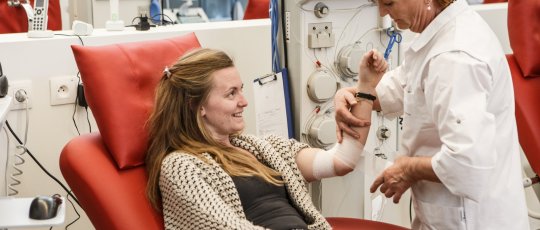
Social and psychosocial care
Evidence-based materials to train children and youth in how they can assist each other in case of mental health problems
In 2019 we developed an evidence-based guideline and training manual for first aid in case of mental health problems. The target group for these materials were adult laypeople. In early 2021 we started the development of evidence-based materials to train children and youth in how they can assist each other in case of mental health problems. This project is funded by the Flemish Government (Agency for Care and Health). Following a consultation with different stakeholders, CEBaP started several evidence reviews. First, we searched for observational research that studied which factors, related to how children and youth interact with each other, are associated to mental health outcomes. An example of a risk factor is peer pressure, while peer acceptance is a protective factor. We searched 3 databases, which resulted in 27738 references that were screened based on title and abstract, and finally 160 studies were included, which were categorized in 10 thematic clusters. In addition, we also conducted an evidence review of studies that looked into the effectiveness of several educational programmes aiming to improve mental health literacy and mental health outcomes, which resulted in 9 existing recent systematic reviews. This body of evidence will serve as the basis for a guideline and didactic materials, which will be further developed in 2022.
Bridging the Gap
In 2013, the Belgian Red Cross and CEBaP developed an evidence-based guideline for the ‘Bridging the Gap’ project in Flanders. In this ongoing project, Belgian Red Cross volunteers join the teaching staff in schools in order to improve personal development goals in at-risk children with poor performance. CEBaP developed evidence-based guidance for volunteers to help them choose the right didactical approach for supporting these children. A paper on this project was published in The International Journal of Evidence-Based Healthcare.
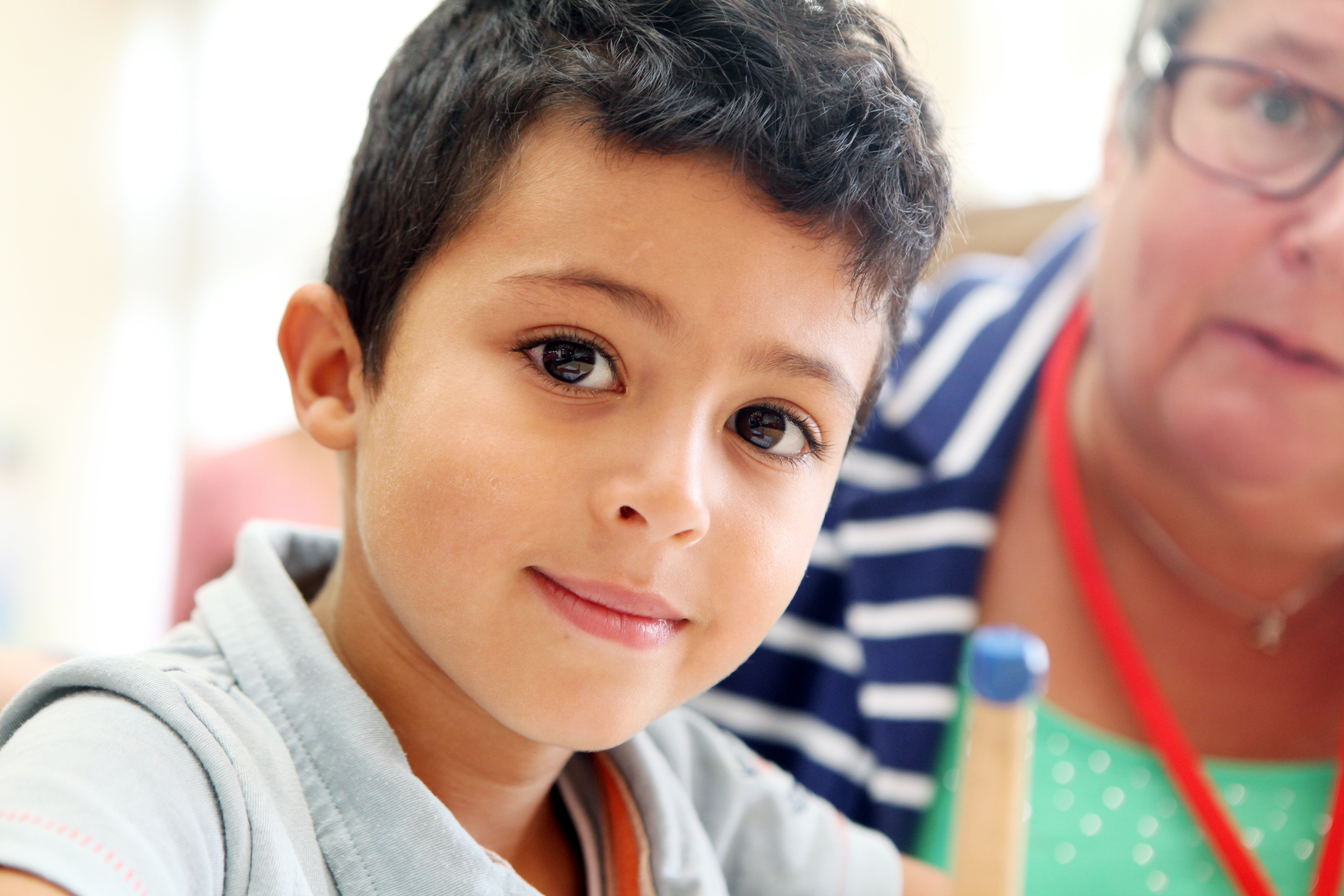 In 2021, we extended Bridging the Gap to the metropolitan and multicultural context of Brussels. In a first phase, we updated the scientific evidence that was summarized in 2013 on 14 specific activities that may increase knowledge, skills, attitudes or mental wellbeing in toddlers and primary school children (e.g. playing board games, doing jigsaws, reading books with a child). Additionally, we performed systematic literature searches on three PICOs about broader types of interventions (stimulating parental involvement, stimulating the use of native language, creating “warm relations”). The applicability and meaningfulness of effective activities found in the literature were discussed with relevant content and experience experts and stakeholders, keeping in mind the challenges and opportunities provided by the specific context of Brussels. Based on the evidence and subsequent expert discussions, we developed an evidence-based guideline for the training of ‘Bridging the Gap’ volunteers in Brussels by the Belgian Red Cross. The full guideline can be consulted here (content in Dutch).
In 2021, we extended Bridging the Gap to the metropolitan and multicultural context of Brussels. In a first phase, we updated the scientific evidence that was summarized in 2013 on 14 specific activities that may increase knowledge, skills, attitudes or mental wellbeing in toddlers and primary school children (e.g. playing board games, doing jigsaws, reading books with a child). Additionally, we performed systematic literature searches on three PICOs about broader types of interventions (stimulating parental involvement, stimulating the use of native language, creating “warm relations”). The applicability and meaningfulness of effective activities found in the literature were discussed with relevant content and experience experts and stakeholders, keeping in mind the challenges and opportunities provided by the specific context of Brussels. Based on the evidence and subsequent expert discussions, we developed an evidence-based guideline for the training of ‘Bridging the Gap’ volunteers in Brussels by the Belgian Red Cross. The full guideline can be consulted here (content in Dutch).
